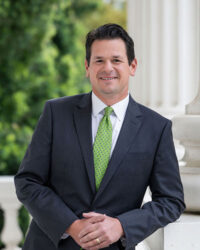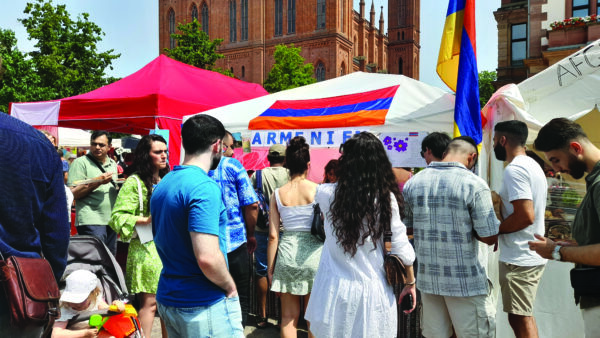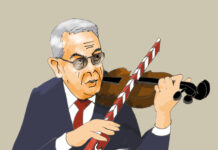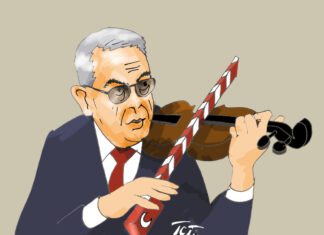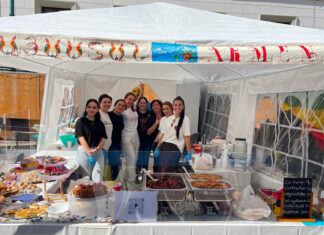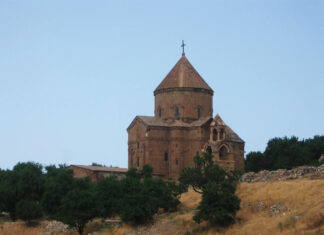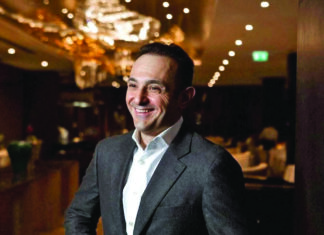WIESBADEN, Germany — If you visit Yerevan in mid-July, you should expect to find people in Republic Square (among other places), armed with buckets, filling them with water from fountains or faucets in nearby restaurants and hotels, and splashing any and every person who comes within range.
Fire engines make their hoses available, as well as watering devices. Everyone gets soaked to the skin.
But Wiesbaden, Germany? It is not on the calendar of events distributed by the local tourism office; and yet, this year, a large group of Armenians gathered in a location outside the city center, and celebrated the festival of Vardavar.
At least one German was among the crowd…
Vardavar is a festival dating back to pre-Christian times, associated with Astghik, the goddess of water, beauty, love, and fertility. The name comes from “Vard,” meaning rose, the flower symbolizing the goddess. The festival lived on after the adoption of Christianity by Armenia, but took on new meaning; it is celebrated on the day of the Transfiguration of Jesus Christ, the 14th Sunday after Easter in the church calendar.
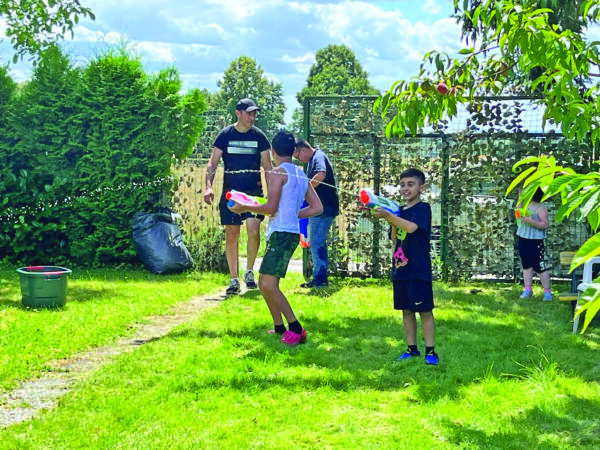
In church services held that day, the liturgy is dedicated to the Transfiguration, with consecration of water, which symbolizes the purification from sins and healing.
